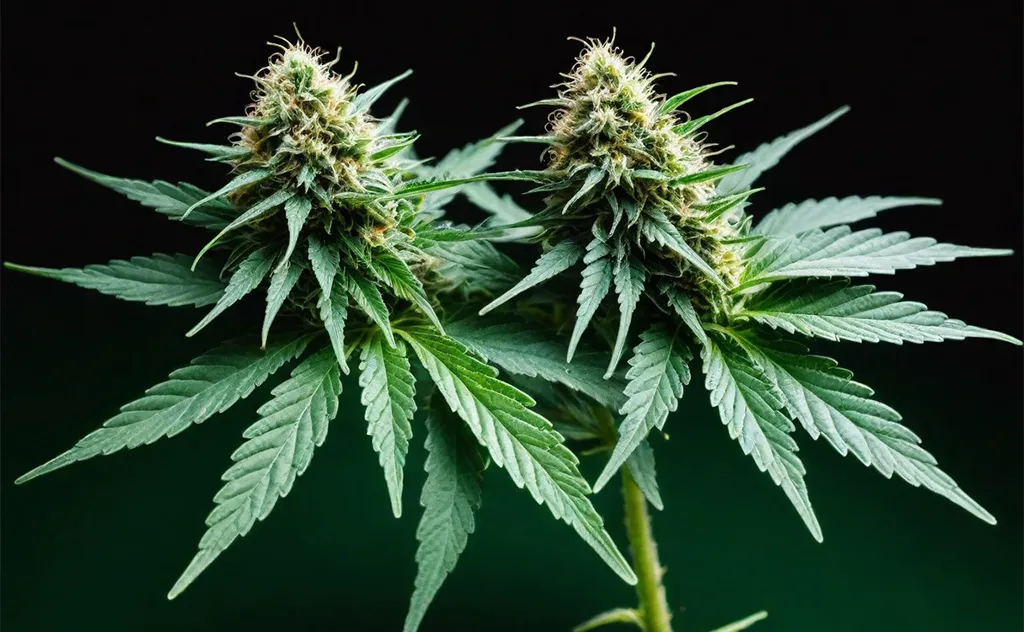Relaxing at the end of a busy day at work, finding relief at times when there are many worries or simply enjoying a moment of relaxation in front of a hot herbal tea.
Here are only a few of the occasions where the power of CBG can come to our aid.
What is CBG? It is nothing more than a cannabigerol, which is a non-psychoactive phytocannabinoid found in the cannabis plant. And yes, it is perfectly legal and usable as it does not cause the psychotropic effects typical of THC, another cannabinoid found in cannabis.
CBG has been the object of growing interest within the scientific community for its potential health benefits. We at Maria CBD, certain of the quality and usefulness of the products distributed in our CBD shop, will go into more detail about this precious gift of nature in the following paragraphs.
What is CBG?
As already mentioned, CBG is part of the phytocannabinoids, which, unlike endocannabinoids, are not produced by the human body, but can be supplemented by the presence of the cannabis plant on our planet.
Cannabigerol, to be precise, is present in the plant’s small outgrowths (trichomes) in the form of CBGA (acid) and is the first to arise in the cannabis plant.
Once harvested and dried, the plants are processed through a heat-based process, whereby the plant components lose their acidic characteristics. In this way, the acids are transformed into non-acidic equivalents, such as CBG, THC and CBD.
Beware, however, that during the flowering of the plant, the cannabinoid most commonly present is still CBG, even if, during drying, its concentration is lower than 1%, which is why this compound has never been the subject of extensive studies (or at least not as much as CBD and THC). CBG, in fact, is not one of the substances regulated by the UN Convention on Psychotropic Drugs. This means that, in many countries, CBG and its derivatives are considered legal because they do not produce psychotropic effects.
What is it used for?
Essentially, as will be understood from the previous paragraph, CBG does not have the properties that make other substances subject to legal control. On the contrary, CBG, by interacting with the endocannabinoid system, is an excellent therapeutic aid in cases where the patient needs to relax and recover states of anxiety.
Suffice it to say that some research dating back to the second half of the 20th century made clear the analgesic and anti-athermitic effects of cannabigerol (Evans, 1991). No less interesting are the antifungal effects (ElSohly et al., 1982).
And the positive influence on carcinomas, is this true? Recently, CBD has been shown to be effective on human epithelioid carcinoma (Baek et al., 1998) and against breast cancer (Ligresti et al., 2006). Moreover, being a TRPM8 antagonist, it could also be effective against prostate cancer (De Petrocellis and Di Marzo, 2010).
Constant applications, which are now the order of the day, also confirm CBD’s ability to be useful in cases of:
- Psoriasis, as it inhibits keratinocyte proliferation;
- Intestinal inflammations, also known as ‘MII’;
- States of depression and anxiety;
- Nausea.
These benefits, in part, are also found when discussing the properties of CBD. There are, however, differences between CBD and CBG.
Difference between CBD and CBG
The acronyms used up to this line have really been many. Some people will probably feel a little lost, especially regarding the difference between CBD (cannabidiol) and CBG (cannabigerol).
Let us therefore provide some clarity on these two terms!
The basic difference between CBG and CBD lies in their molecular structure, properties and potential health benefits. Furthermore, while both prove to be anti-inflammatory, CBG seems to stand out for its antibacterial and neuroprotective properties. This means it could be particularly effective in fighting antibiotic-resistant bacterial infections and protecting nerve cells, offering potential benefits in the treatment of neurodegenerative conditions.
These distinctions in therapeutic properties suggest that CBD and CBG could be used synergistically or in specific ways to address different medical conditions and improve general well-being.
Obviously, any type of intake always requires medical consent.

How does it act on the human body?
CBG is a phytocannabinoid found in the cannabis plant and interacts with CB1 and CB2 receptors of the human endocannabinoid system. Moreover, it inhibits the GABA (gamma-aminobutyric acid), being able to reduce anxiety and muscular tension typical of various conditions. According to some researchers, it therefore acts similarly to cannabidiol.
To cut a long story short, cannabigerol is a ‘regulatory’ substance supporting our endocannabinoid system without a specific goal. This could have a beneficial impact on a number of physiological and behavioural processes. CBG also helps in the regulation of homeostasis, i.e. functional balance.
The ability of CBG to modulate anandamide production represents an interesting area of study in cannabinoid research and could pave the way for new therapies targeting a variety of medical conditions and disorders.
From a practical point of view, CBG can act on the body through products such as oils, gummies, creams, herbal teas etc… Different items for different uses, allowing users to harness the power of cannabis in the most convenient way and according to their tastes.
Let’s now move on to find out which are the specific effects of CBG on our body and the benefits for which cannabigerol-based products are gaining so much popularity.
Effects and benefits of CBG
As already mentioned, CBG has therapeutic potential in the treatment of glaucoma as it helps reduce intraocular pressure by encouraging drainage of the eye. This is a beneficial effect proven by numerous studies, such as the one conducted by Brenda K. Colasanti of West Virginia University.
CBG’s action on intestinal inflammation and Crohn’s disease is also important, since, as we have seen, it has strong anti-inflammatory and analgesic properties. Also benefiting from the advantages of CBG are people suffering from states of depression and those who, for various reasons, suffer from constant attacks of nausea.
Some studies have also highlighted how CBG is able to inhibit the growth of cancer cells, even though we are a long way from considering cannabigerol an actual cure for tumours.
The latest beneficial effects of CBD include cannabigerol’s ability to delay the advancement of neurodegenerative diseases, its antifungal and antimicrobial properties, its topical anti-inflammatory function in cases of psoriasis, and its efficacy in treating bladder dysfunction.
Remembering and premising that medical counselling is essential in dealing with illnesses and disorders and cannot be replaced by other solutions, we are here to provide you with personalised support and recommend the CBG products best suited to your needs.
For years we have been offering in-depth information on the benefits of cannabidiol and its safe use, precisely to help the public better understand how to integrate this substance into their daily lives.
Stop by our shop and discover a comprehensive and professional counselling service to help you make informed decisions about your well-being.
 Contact us
Contact us 


